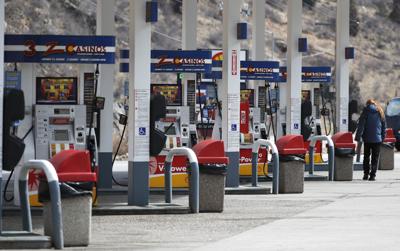
(The Center Square) – Two of Colorado’s most influential conservative advocacy groups say they will join forces on ballot measure language to reduce the state’s gas tax in 2022.
Americans for Prosperity-Colorado (AFP-CO) and Colorado Rising State Action announced the plan in a statement on Monday in response to a Democratic-backed proposal to hike fees on gasoline to fund the state’s transportation system.
The $3.9 billion fee proposal, which hasn’t been formally introduced in the General Assembly yet, would include fee increases on regular gas, diesel gas, electric vehicle registrations, ride-shares, and online retail deliveries.
To read the rest of this story, please click (HERE):
 By Christine Burtt, TABOR Foundation Board Member
By Christine Burtt, TABOR Foundation Board Member